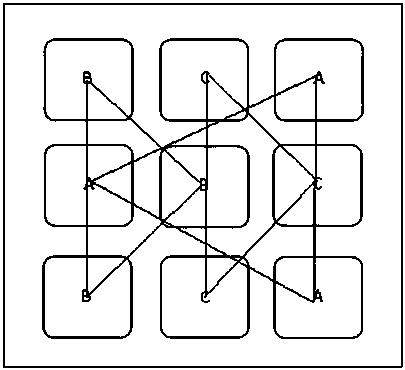Method for restoring uranium contaminated soil by constructing phytocoenosis community with bamboo willows, broad leaf paspalum and macleaya cordata
A broad-leaf paspalum and plant community technology is applied in the field of phytoremediation of uranium-contaminated soil, which can solve the problems of limited total amount of extracted uranium and small biomass, and achieve the effects of large biomass, strong fast-growing and good stability.
- Summary
- Abstract
- Description
- Claims
- Application Information
AI Technical Summary
Problems solved by technology
Method used
Image
Examples
Embodiment Construction
[0026] ⅠMaterial
[0027] Arbor plant bamboo willow Bamboo-willow ( Salix sp. ), the herbaceous plant Paspalum broadleaf ( Paspalum scrobiculatus
[0028] mlinn ) and the herbaceous Bo Luohui ( Macleaya cordata ).
[0029] Ⅱ Principle
[0030] Bamboo willow is a member of the family Salicaceae ( Salicaceae ) plants, trees, with great growth potential, up to 20 meters in height, obvious apical dominance, strong germination ability of axillary buds, early branching, 30-45 degrees between side branches and main trunk. It can grow in soil or sandy land with a pH value of 5.0-8.5, low-humidity river beach or weak saline-alkali land, and has the characteristics of wide application, strong fast-growing, large biomass, strong adaptability, and excellent material; broad-leaved paspalum ( Paspalumscrobiculatumlinn ) is a perennial grass, the stalks are usually clustered, rarely solitary, erect or inclined, 25-50 cm high, with 2-3 nodes, strip-lanceolate leaves, 5-20 cm long,...
PUM
 Login to View More
Login to View More Abstract
Description
Claims
Application Information
 Login to View More
Login to View More - R&D
- Intellectual Property
- Life Sciences
- Materials
- Tech Scout
- Unparalleled Data Quality
- Higher Quality Content
- 60% Fewer Hallucinations
Browse by: Latest US Patents, China's latest patents, Technical Efficacy Thesaurus, Application Domain, Technology Topic, Popular Technical Reports.
© 2025 PatSnap. All rights reserved.Legal|Privacy policy|Modern Slavery Act Transparency Statement|Sitemap|About US| Contact US: help@patsnap.com

